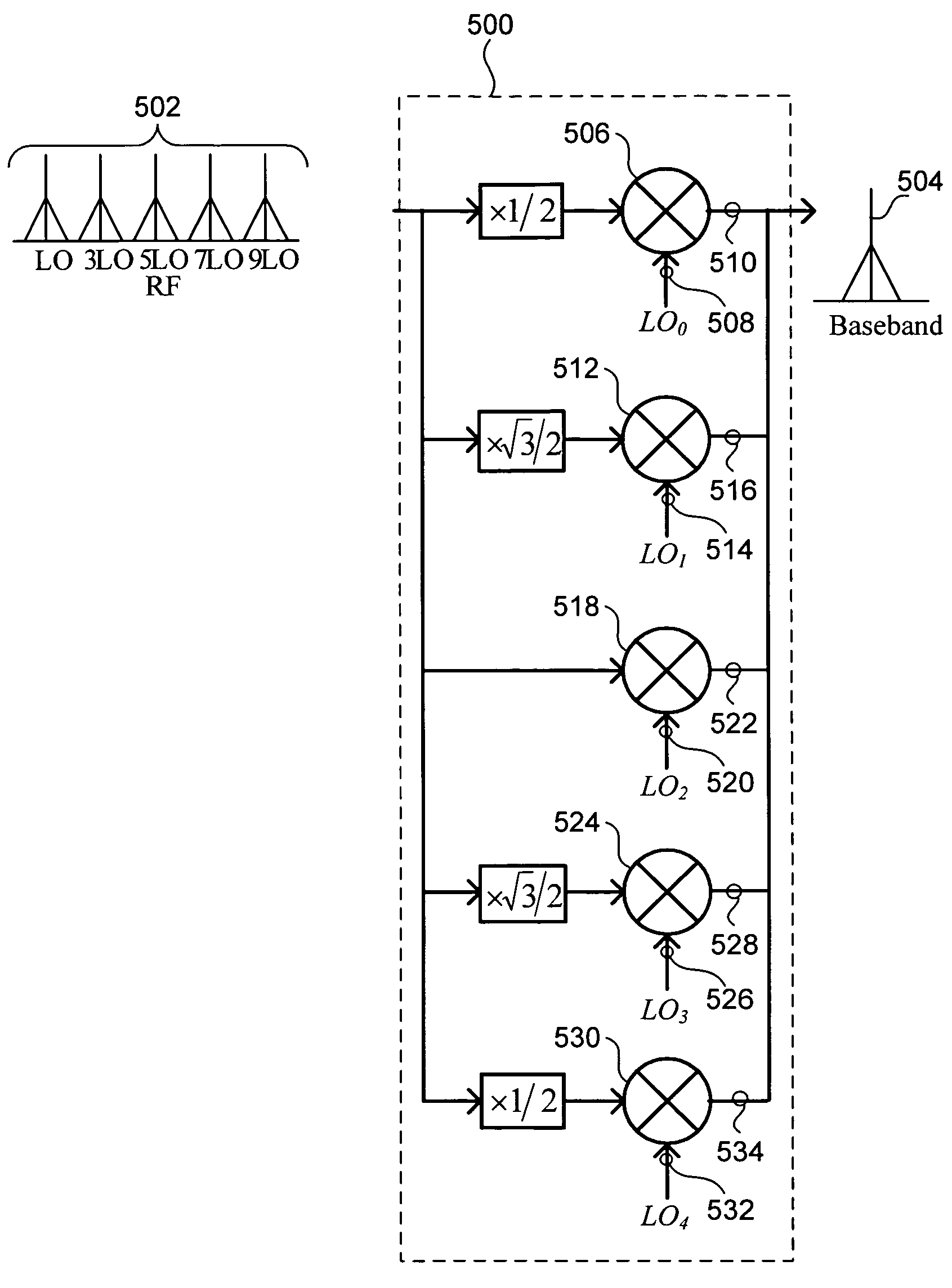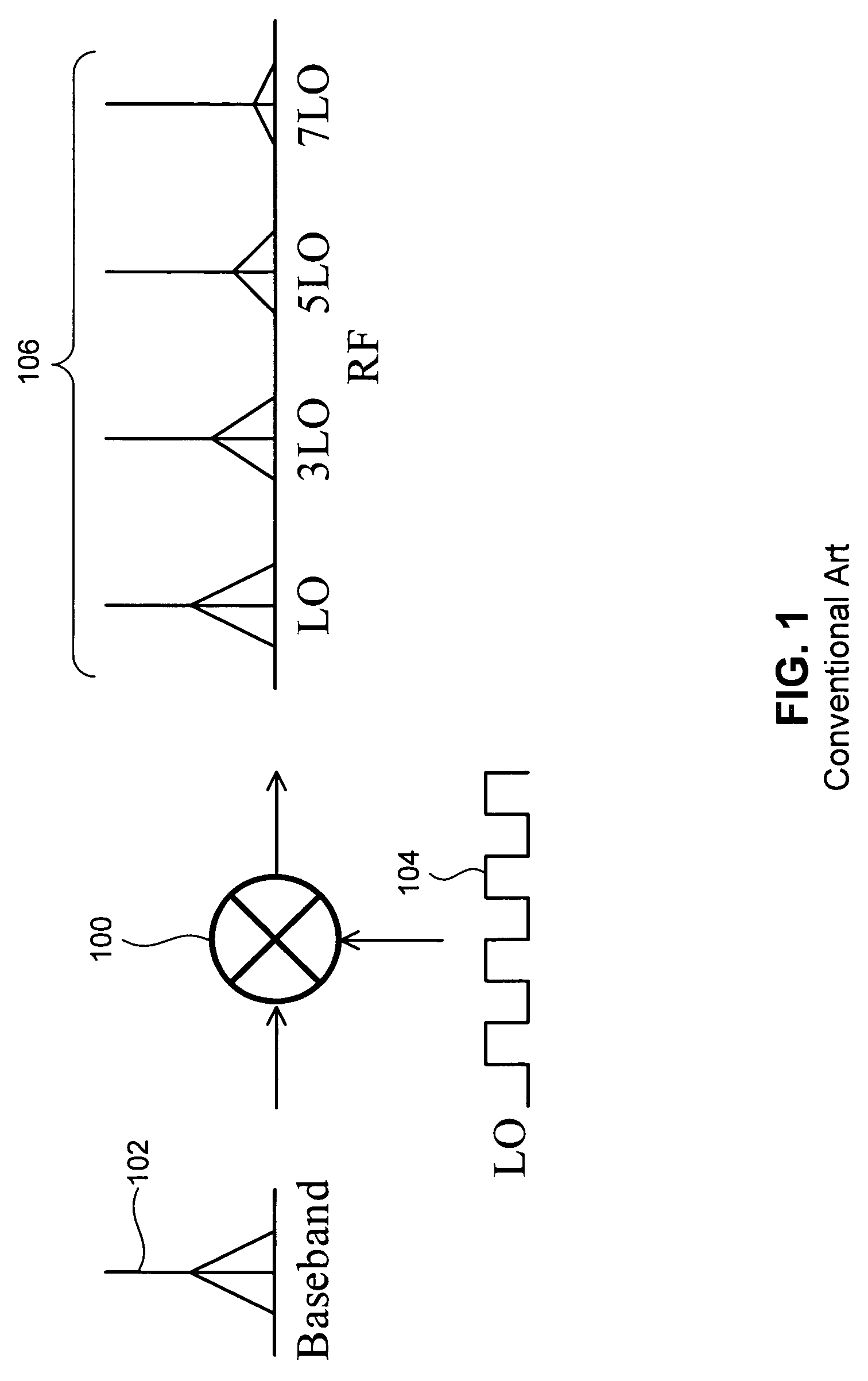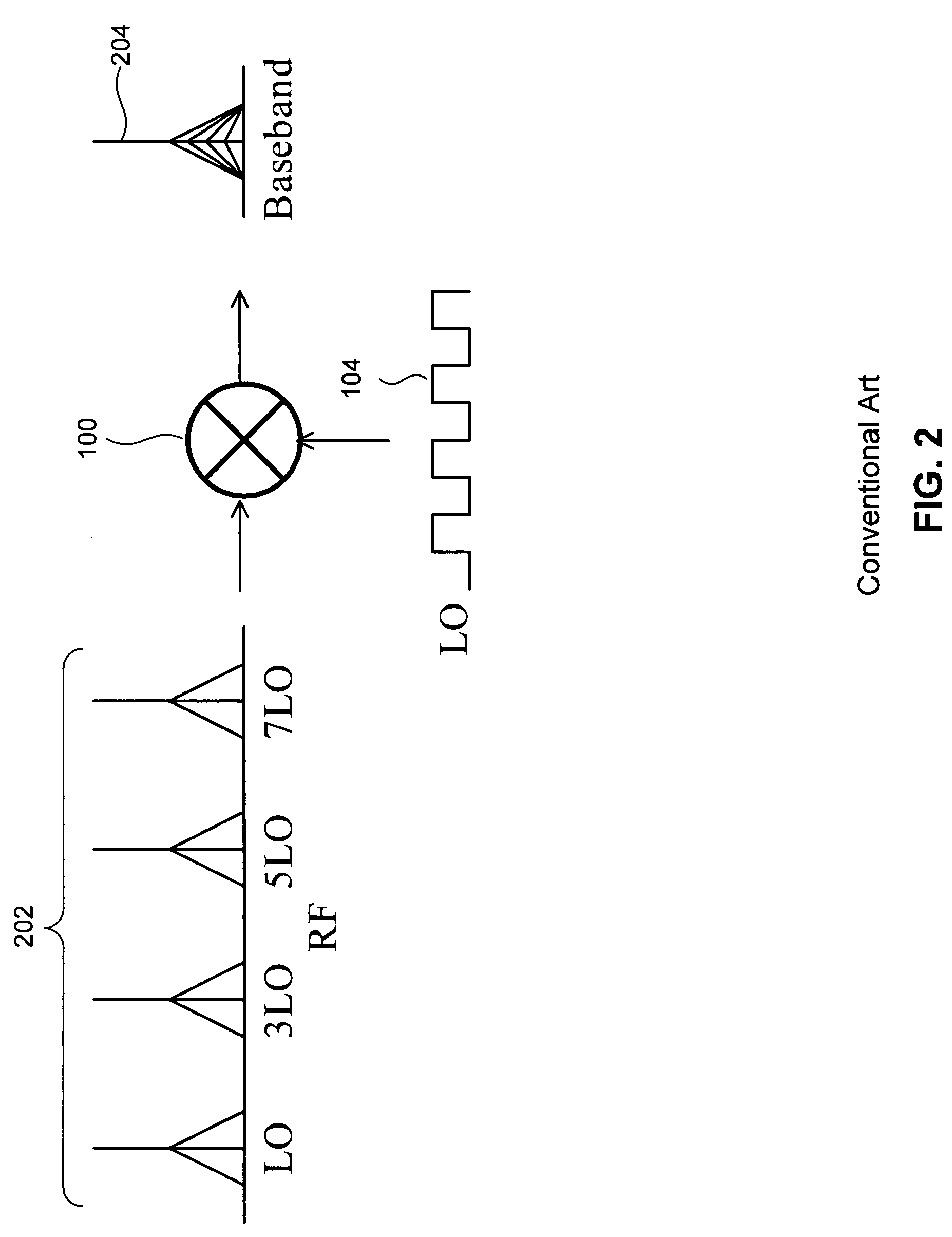High-order harmonic rejection mixer using multiple LO phases
a high-order, lo-phase technology, applied in the field of mixers, can solve the problem that the input signal of rf at odd multiples of the lo frequency is directly interfering with each other, and achieve the effect of improving the rejection of high-order harmonic effects
- Summary
- Abstract
- Description
- Claims
- Application Information
AI Technical Summary
Benefits of technology
Problems solved by technology
Method used
Image
Examples
Embodiment Construction
[0024]FIG. 1 illustrates a conventional switching mixer 100 used in a radio frequency (RF) transmitter. The conventional switching mixer 100 receives a baseband signal 102. The conventional switching mixer 100 uses a local oscillator (LO) signal 104 to generate an RF output signal 106. Specifically, the conventional switching mixer 100 up-converts the baseband signal 102 to a frequency of the LO signal 104. Consequently, the RF output signal 106 is a frequency translated version of the baseband signal 102.
[0025]The RF output signal 106 generated by the conventional switching mixer 100 includes attenuated copies or replicas of the baseband signal 102 at odd multiples of the LO frequency. Two main causes of these harmonics are the shape of the LO signal 104 and the switching action of the conventional switching mixer 100.
[0026]The waveform of the LO signal 104 usually resembles a square wave more than a sinusoidal wave, especially at low frequencies of the LO signal 104. Unlike a sing...
PUM
 Login to View More
Login to View More Abstract
Description
Claims
Application Information
 Login to View More
Login to View More - R&D
- Intellectual Property
- Life Sciences
- Materials
- Tech Scout
- Unparalleled Data Quality
- Higher Quality Content
- 60% Fewer Hallucinations
Browse by: Latest US Patents, China's latest patents, Technical Efficacy Thesaurus, Application Domain, Technology Topic, Popular Technical Reports.
© 2025 PatSnap. All rights reserved.Legal|Privacy policy|Modern Slavery Act Transparency Statement|Sitemap|About US| Contact US: help@patsnap.com



